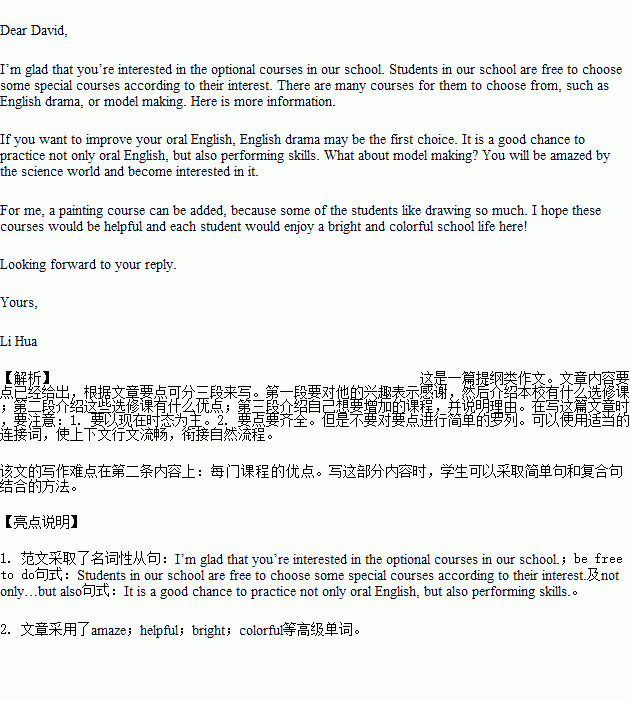题目内容
假定你是李华,你的美国笔友David对你校开设的一些选修课(optional course)非常感兴趣,来信向你询问有关事宜。请根据以下内容提示给他写封回信。
1.选修课程包括:英语戏剧,模型制作(model making)等;
2.每门课程的优点;
3.你希望增加的课程及理由。
注意:1. 词数100左右;
2. 可以适当增加细节,以使行文连贯;
3. 开头语已为你写好,不计入总词数。
Dear David,
Looking forward to your reply.
Yours,
练习册系列答案
 轻松暑假总复习系列答案
轻松暑假总复习系列答案
相关题目

